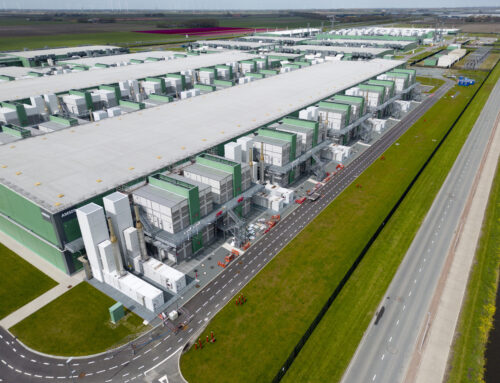 A new report shows that total cost of union mechanical projects was 4% less than non-union projects due to productivity gains. The Mechanical Contractors Association of America (MCAA) employer group and the United Association of Union Plumbers and Pipefitters (UA) union jointly commissioned the research by the independent international construction project engineering and research firm, Independent Project Analysis (IPA).
A new report shows that total cost of union mechanical projects was 4% less than non-union projects due to productivity gains. The Mechanical Contractors Association of America (MCAA) employer group and the United Association of Union Plumbers and Pipefitters (UA) union jointly commissioned the research by the independent international construction project engineering and research firm, Independent Project Analysis (IPA).
IPA examined data from 1,550 union, non-union, and mixed labor capital projects over the past twenty years. Two thousand specific performance metrics were analyzed to measure the cost of labor on projects varying in scope from $200,000 to $6 billion. Union mechanical contractors were found to be 15% more productive than non-union contractors resulting in 4% less costs despite higher wages and better benefits for union workers. Projects where there was a mix of union and non-union labor still showed a productivity gain of 8% compared to exclusively non-union projects.
Cost savings on projects using union labor largely came from efficiency gains related to lower field and office costs. The report found that projects employing union labor require nearly 10% fewer craft workers, on average, than projects using non-union labor. The report’s findings suggest that the 4% savings in labor costs stem from higher productivity from union labor. This translates into both fewer hours worked by union labor as well as fewer individuals being required to accomplish the same work.
In reaction to the report, Joel Zielke, Business Manager for Steamfitters Local 601 stated, “When we say union labor is the most skilled, trained, safe, and productive workforce in the construction business, we mean it. The research once again proves it, and now it’s also showing that it results in actual cost savings. I’m proud of my members and the work that our tradespeople are doing because they’re the best trained and skilled construction workers in the business.”
Jonathan Kowalski, Executive Director of the Plumbing Mechanical and Sheet Metal Contractors’ Alliance adds, “The skillsets of these craft workers and foremen are helping to drive the cost competitiveness of the union signatory contractors in our Associations. Our contractors are the best in the business, and there is solid data showing they’re also the most cost competitive.”
The study also confirms that union labor delivers lower and more predictable project costs and more predictable schedules. While it established that union labor is significantly more productive than non-union labor, and that the higher productivity is linked to overall cost savings, it also showed that union labor was 40% less likely to experience a shortage of skilled labor. Projects that are short on labor are twice as likely to have a 10% or higher cost overrun and are more likely to have a schedule slip by 25% or more. Union labor is on-time and on-budget and during this tight labor market it has never been more important to use a workforce that will get projects done on-time.
Building Advantage is a joint labor-management council in the commercial construction industry. We represent the mutual interests of Southeast Wisconsin’s construction labor unions and their signatory contractors. For more information, email Building Advantage’s Executive Director, Chris Mambu Rasch, at crasch@buildingadvantage.org





